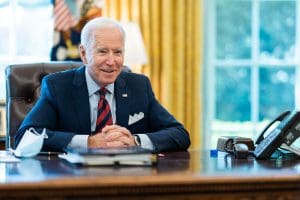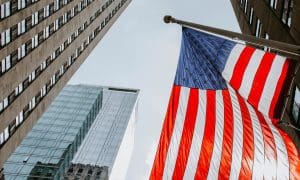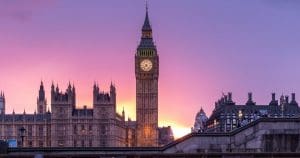The economic crisis caused by the coronavirus pandemic poses a triple challenge for tax policy in the United States. Lawmakers are tasked with crafting a policy response that will accelerate the economic recovery, reduce the mounting deficit, and protect the most vulnerable.
To assist lawmakers in navigating the challenge, and to help the American public understand the tax changes being proposed, the Tax Foundation’s Center for Federal Tax Policy modeled how 70 potential changes to the tax code would affect the U.S. economy, distribution of the tax burden, and federal revenue.
In tax policy there is an ever-present trade-off among how much revenue a tax will raise, who bears the burden of a tax, and what impact a tax will have on economic growth. Armed with the information in our new book, Options for Reforming America’s Tax Code 2.0, policymakers can debate the relative merits and trade-offs of each option to improve the tax code in a post-pandemic world.

Biden’s Corporate Minimum Book Tax Narrows, but Problems and Uncertainties Remain
The corporate tax base should be reformed directly, rather than piecemeal through a complicated and burdensome separate tax applicable to a small number of companies.
5 min read
Denying Deductions for Pharma Ads Is Bad Tax Policy
The “End Taxpayer Subsidies for Drug Ads Act” would prohibit companies from deducting the costs of prescription drug advertisements directed at the public. However, the bill’s title is a misnomer: the deduction is not a tax subsidy.
2 min read
IMF Tax Proposals: Shrink Inequality or Sink Post-Pandemic Recovery?
To help countries face the pandemic-related financing needs while reducing inequality, the International Monetary Fund (IMF) has released a series of policy recommendations based on a temporary COVID-19 tax, levied on high incomes or wealth.
4 min read
Biden’s Tax Plan Would Restore U.S. Exceptionalism—But Not in a Good Way
No other country has tried to enforce some of the policies that the Biden administration is proposing. Embarking on such uncharted course would set the U.S. apart from global tax policy norms and best practices and could harm American competitiveness.
4 min read
Leveling Up: The UK’s Super-Deduction and its Regional Divide
As part of the 2021 Budget, the UK introduced a 130 percent super-deduction for plant and equipment for the next two years, meaning that businesses can take a deduction amounting to 130 percent of the costs in the year the investment is made.
4 min read
Portland Small Business Owners Facing Weirdly High New Taxes—and It Could Get Worse
Newly implemented county and regional taxes yield state and local top marginal tax rates in excess of 26 percent for many Portland small businesses, and if all of President Biden’s tax proposals were adopted, those owners could face all-in marginal rates of more than 80 percent, far and away the highest in the country going back decades.
5 min read
Arcane Federal Tax on Sports Betting Is Too Much to Handle
Lawmakers would be well-advised to consider changes to the federal excise tax on sports betting if the industry is to be successful competing against the large illicit market for wagers.
3 min read
The Balancing Act of GILTI and FDII
The tax treatment of intangible assets has come into the spotlight recently with the Biden administration proposing to undo a policy adopted in 2017 to encourage intellectual property (IP) to be located in the U.S.
6 min read
14.8% Individual Income Tax and 16.1% Corporate Income Tax Coming To New York City?
Raising rates on those with the most flexibility to leave—or never to return—risks turning those fears into a self-fulfilling prophesy.
3 min read
ARPA’s Tax Cuts Limitation Is a Problem for More States Than You Think
Tax cut legislation is not just a red state phenomenon, and tax reductions come in many forms other than rate reductions. The American Rescue Plan Act’s state tax cuts limitation is a problem for more states than you think.
2 min read